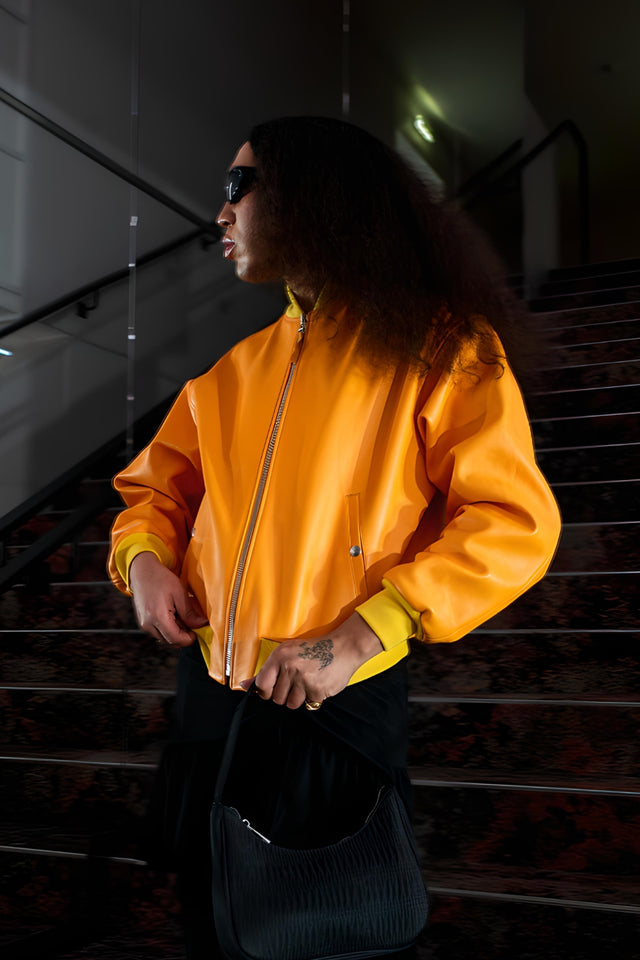Environment
WE HAVE COME SO FAR, WE'VE GOT SO FAR TO GO
Care for our environment is a foundational pillar of SAPAYOL. It informs every aspect of our work. In our understanding, the environment is one big organism that includes people and animals.
Materials
Production partners
Durability
Materials
We are obsessed with finding materials that are durable and have a minimal ecological footprint. It's our goal to avoid plastic and exclusively use natural materials.
Leather
We’ve chosen a brand new tanning process called wet-green tanning, which is based on an olive leaf extract. It avoids the health and environmental risks of chrome tanning. Synthetic tanning, which progressive luxury fashion houses are moving to, still didn't satisfy our concerns.
Learn more about different tanning methods and the benefits of wet-green tanning.
All lamb skins come from Turkey, where animals are being herded in traditional ways and get ample movement, sunlight, and natural nutrition.
Lamb skins are a byproduct of the meat industry. The skin is economically insignificant for a sheep owner, often accounting for ~1% of the animal's value. No lamb has to die to make leather, but because some people haven't changed to a vegetarian/vegan diet, yet. We will never work with leather from animals that have been bred or killed solely for their skin.
There are no viable alternatives to animal leather at the moment, but we are monitoring the developments in the sector closely. What is is often marketed as vegan leather is either purely plastic based or uses plastic as a binding agent.
An area where we need more information, is the dye that is used to color our leather and if there are more ecological alternatives.
Lining
Our lining is made of Tencel (Lyocell), one of the most eco-friendly, durable fibers, based on wood pulp.
We opted against other cellulosic fibers, such as Viscose, Acetate, and Cupro, because the production process involves unnecessary amounts of chemicals, health risks, and water. Silk production is incompatible with our idea of ethical animal treatment.
While organic cotton is great in many aspects, it's nearly impossible to avoid issues with artificial irrigation. Tencel has qualities that are more desirable for a lining fabric (durability, breathability, moisture wicking) and it's produced in a closed loop and therefore minimizes water consumption.
Knits
Our ribbings are made from Tencel yarn, combined with a small amount of elastane to give it the right elasticity. We decided to have them custom-made from scratch (yarn spinning, dyeing, knitting), because neither Tencel nor organic cotton ribbings are available on the market in our desired quality.
Shearling
The shearling on the detachable collar of the J-1 comes from European Merino sheep. The unethical practice of "mulesing" in Australia isn't present in Europe.
Zippers & Buttons
Our zippers and buttons are nickel-free. The zipper band is made from recycled polyester. We are looking into zipper bands made from cotton, but have concerns regarding their reliability.
Labels
All our labels are made from recycled polyester.
Packaging
There are certain expectations regarding packaging for a luxury products, that usually involve excess materials that aren't recyclable or biodegradable. We keep our packaging to a minimum and still protect our valuable goods from damage.
Our jackets are shipped in a garment bag, made of organic cotton in Italy. Every jacket comes with a hanger made of European beech from sustainable sources. The shipping box is made of unlaminated, unbleached cardboard.
Production partners
We choose partners that share our values and we have visited every major supplier.
The tailors in Istanbul are practically family. We know they have safe and healthy work conditions and above-average pay, including health and social benefits. Swiss chocolate gift baskets not included.
Our tannery in Istanbul is Europe's first LWG (Leather Working Group) Gold Certified Leather and Fur Suede production in a single facility.
Our textile supplier for yarn and woven fabrics in Izmir, Turkey, is an industry leader in sustainability.
We minimize transportation by selecting partners that are as close to each other as possible.
Durability
The biggest impact on our environment comes from consumption. We buy too many goods and services and the fashion industry plays a major role in this. The best thing we can do for our planet, is to be modest and consume less.
It’s one of the goals of SAPAYOL to show that our jackets don’t just show up at the doorstep, but that they are made by people we know. They are a consequence of a chain of events and choices. We want our customers to realize that this applies to every product. That, in our opinion, is the basis for sustainable action.
Our products are designed to last a lifetime.

